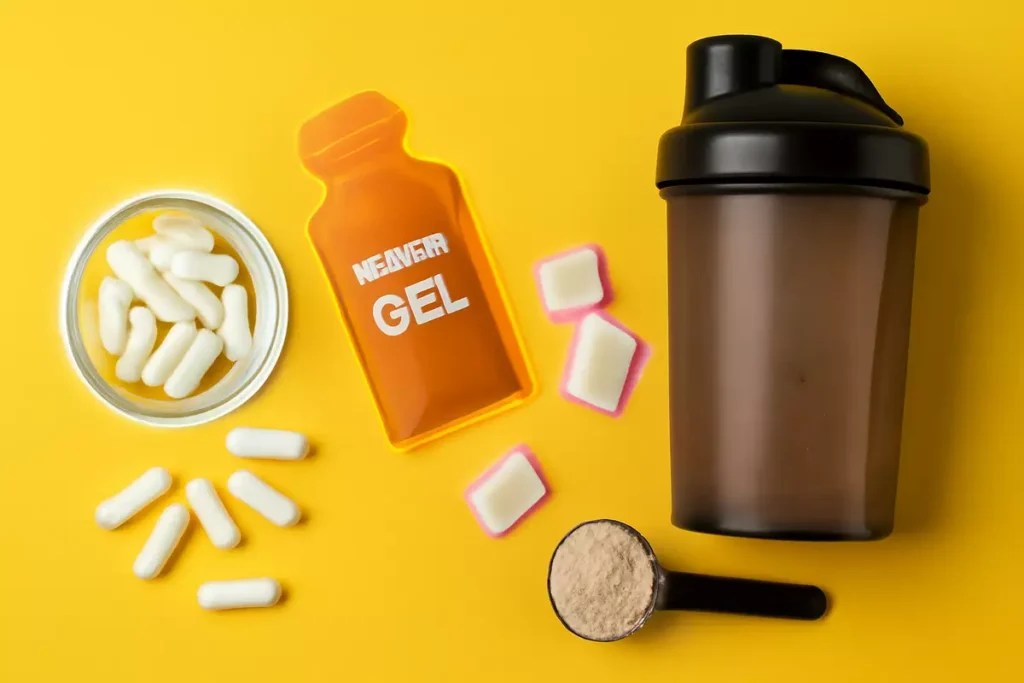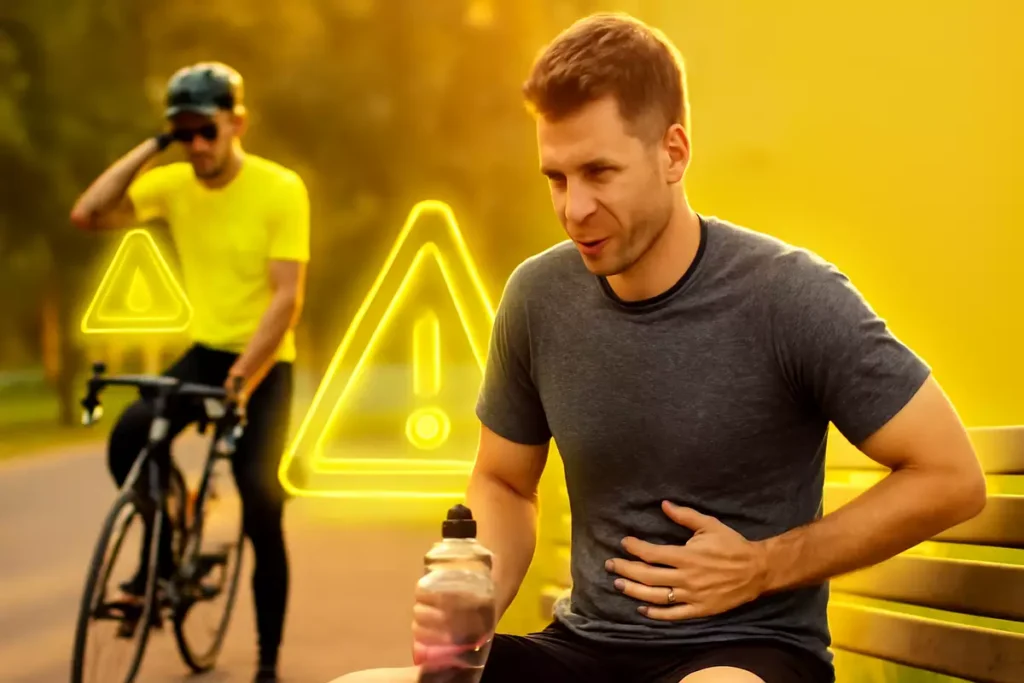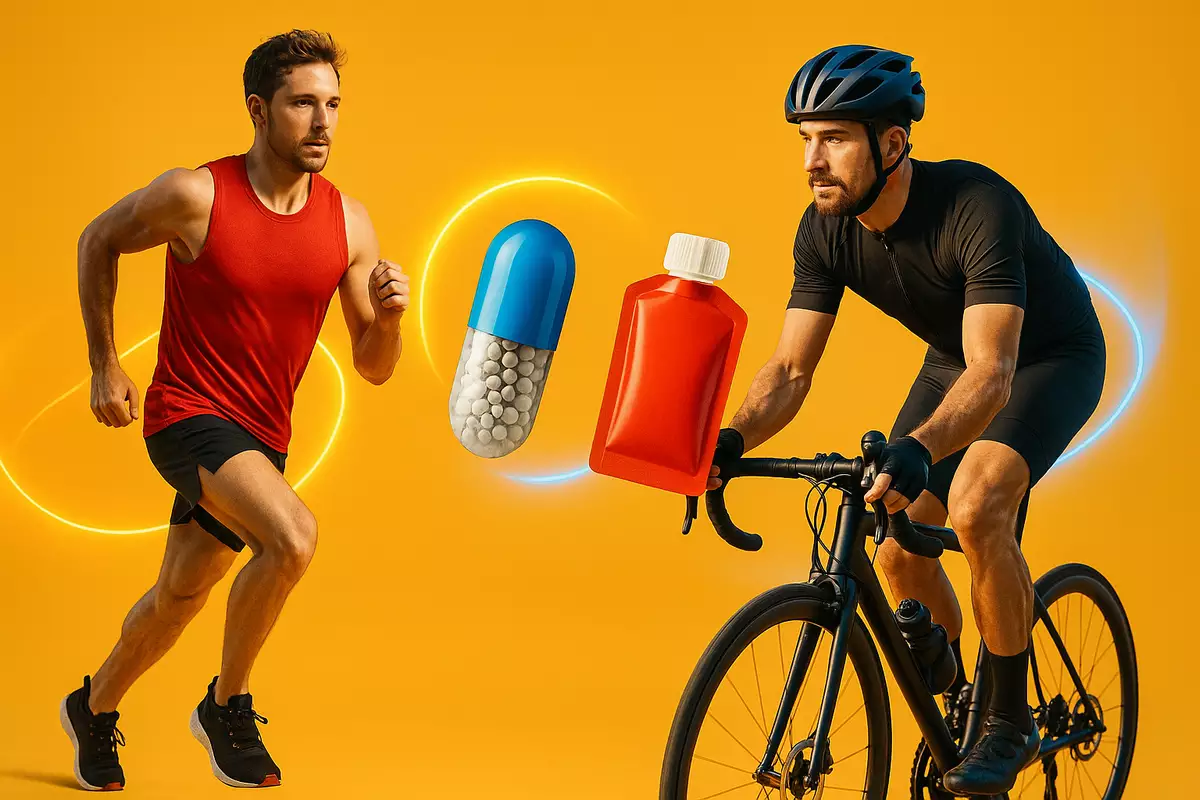Looking for a simple way to run faster, ride stronger, and push through fatigue? Caffeine might be your secret weapon.
Endurance athletes around the world—from marathon runners to long-distance cyclists—rely on caffeine to sharpen focus, delay exhaustion, and maximize performance.
The best part? You don’t need complicated stacks or risky supplements. Choosing the right caffeine product can give you the extra edge you’ve been missing.
Let’s dive into the best caffeine supplements for runners and cyclists, how they work, and how you can use them to level up your endurance.
Table of contents
Quick Answer
If you’re a runner or cyclist looking for an extra edge, caffeine supplements can be game-changing.
Based on both my own use and my clients’ experiences, here are the best options:
- Caffeine capsules/tablets – Consistent, easy to measure, and stomach-friendly.
- Caffeine gels – Quick energy for long runs or rides, easy to carry mid-race.
- Caffeine chewing gum – Fast absorption, great for pre-race nerves or mid-ride focus.
- Caffeine powders/drinks – Flexible, but harder to control dosage.
Personally, I lean on capsules for training and gels or gum for races. That mix has worked best for me and many athletes I coach.
If you’re wondering whether caffeine works better with or without food before training, I’ve broken it down here.
How Caffeine Improves Running and Cycling Performance
Caffeine is one of the most researched supplements for endurance sports.
It helps by:
- Boosting energy and alertness so you push harder for longer.
- Reducing perceived fatigue, making miles feel more manageable.
- Sharpening focus and concentration, especially on long rides or late-race efforts.
In my own training, I noticed I could hold pace much longer with caffeine. On a 15 km run, 200 mg caffeine taken about 40 minutes before helped me power through the last 5 km without that “dragging” feeling.
If you want to understand how caffeine impacts metabolism and fat-burning, check out my detailed guide here.
Top Caffeine Supplement Forms

Caffeine Capsules/Tablets
Perfect for controlled dosing.
I prefer them for most of my training sessions because they’re predictable and gentle on the stomach.
Caffeine Energy Gels
Ideal for race day or mid-run boosts.
During a half-marathon, I took a gel at the 12 km mark and felt a clear surge that carried me to the finish strong.
Caffeine Chewing Gum
Fast-acting and practical when you don’t want to carry bulky items.
One of my clients, Sophia from Germany, swears by caffeine gum before her 10K runs—it keeps her sharp and prevents late-race slowing.
Caffeine Powders and Drinks
Useful but less precise.
I’ve tried them, but for endurance, I prefer capsules or gels since they’re easier to control.
If you’re curious about different caffeine sources, I’ve compared caffeine anhydrous vs natural caffeine in detail.
Best Timing and Dosage for Runners and Cyclists
The sweet spot for most athletes is 180–220 mg of caffeine about 40 minutes before running or cycling.
For longer events, an additional 75–100 mg mid-race works well.
Personally, this strategy has never failed me.
For example, on a 60 km ride, I’ll take 200 mg before starting and a small gel halfway through. It keeps my energy stable without any crashes.
If you’re not sure about how much caffeine is safe, I’ve covered it thoroughly in my guide on caffeine safe dosage for athletes.
Potential Side Effects and How to Avoid Them

Caffeine isn’t risk-free.
Common issues include jitters, stomach discomfort, and trouble sleeping if taken too late.
I’ve made those mistakes myself. Once, I took 250 mg caffeine at 6 PM before a ride and couldn’t sleep until 2 AM.
Lesson learned: I now avoid caffeine within six hours of bedtime and never exceed 300 mg.
For beginners, I always recommend starting with 100 mg to test tolerance.
One of my clients, Mark from Canada, learned this the hard way during a triathlon. He tried a double dose on race day without testing it first, ended up with stomach cramps, and lost precious time.
After adjusting his strategy in training, caffeine became a real asset for him.
For more details on the mental and physical effects, read my article about caffeine and athletic performance.
Trainer’s Final Recommendation
If you’re a runner or cyclist, caffeine can absolutely improve your endurance and focus.
My advice is simple:
- Use capsules or tablets for regular training—consistent and reliable.
- On race day, go with gels or gum—fast, practical, and easy to use mid-race.
- Always test your dosage in training before using it in competition.
From my coaching experience, I’ve seen caffeine turn good performances into great ones.
Daniel from Spain, one of my cyclists, used to struggle with fatigue on long hill rides. After adding 150 mg caffeine before training, he handled climbs smoother and recovered faster.
Caffeine isn’t a magic bullet, but used smartly, it’s one of the best supplements endurance athletes can have in their toolkit.
If you start small, test your timing, and listen to your body, it can help you run faster, cycle stronger, and finish with confidence.
And if focus during endurance sessions is something you want to master, I highly recommend exploring the benefits of caffeine with L-theanine for smoother energy and concentration.
For a broader overview, check my article on caffeine benefits for strength and endurance.



Leave a Reply